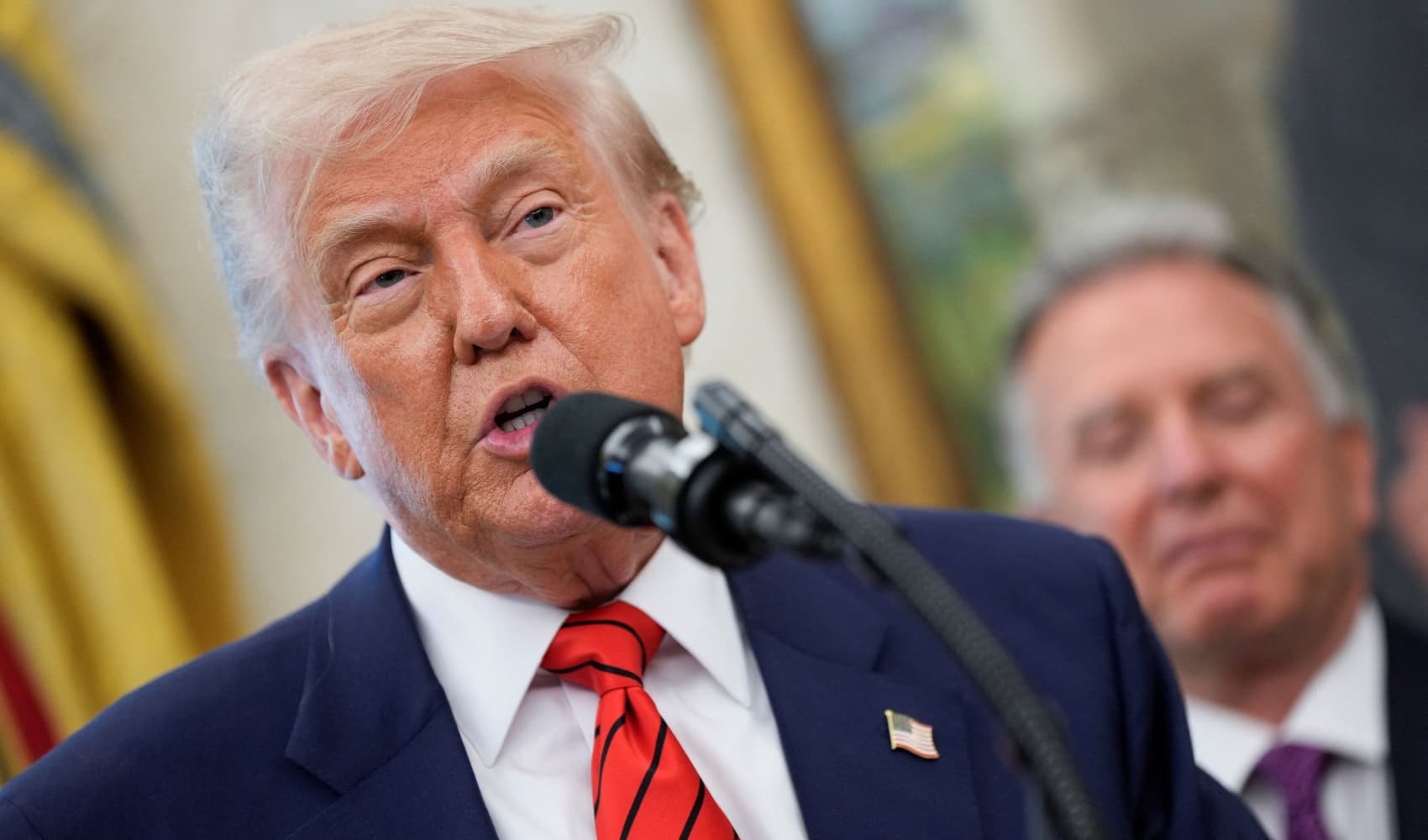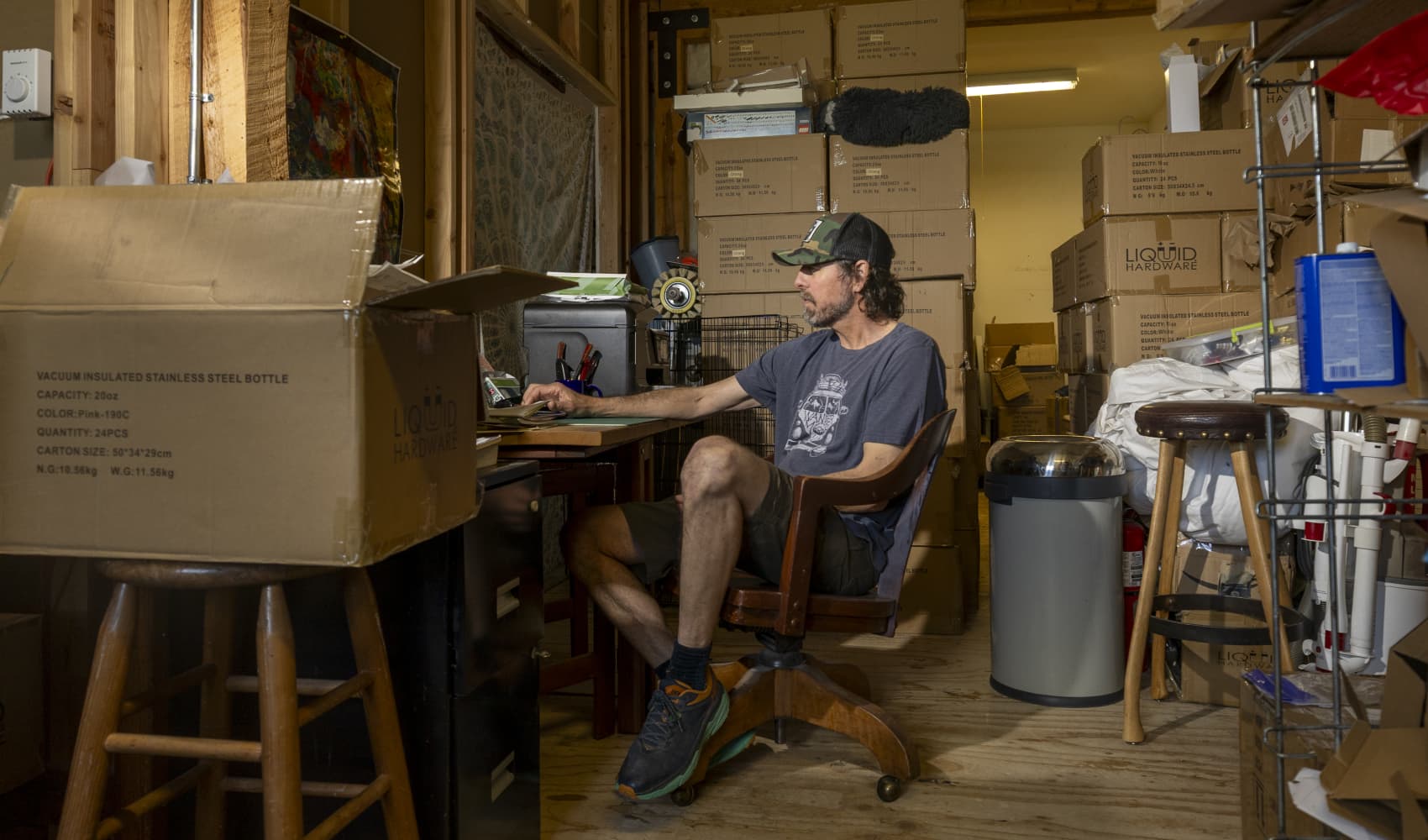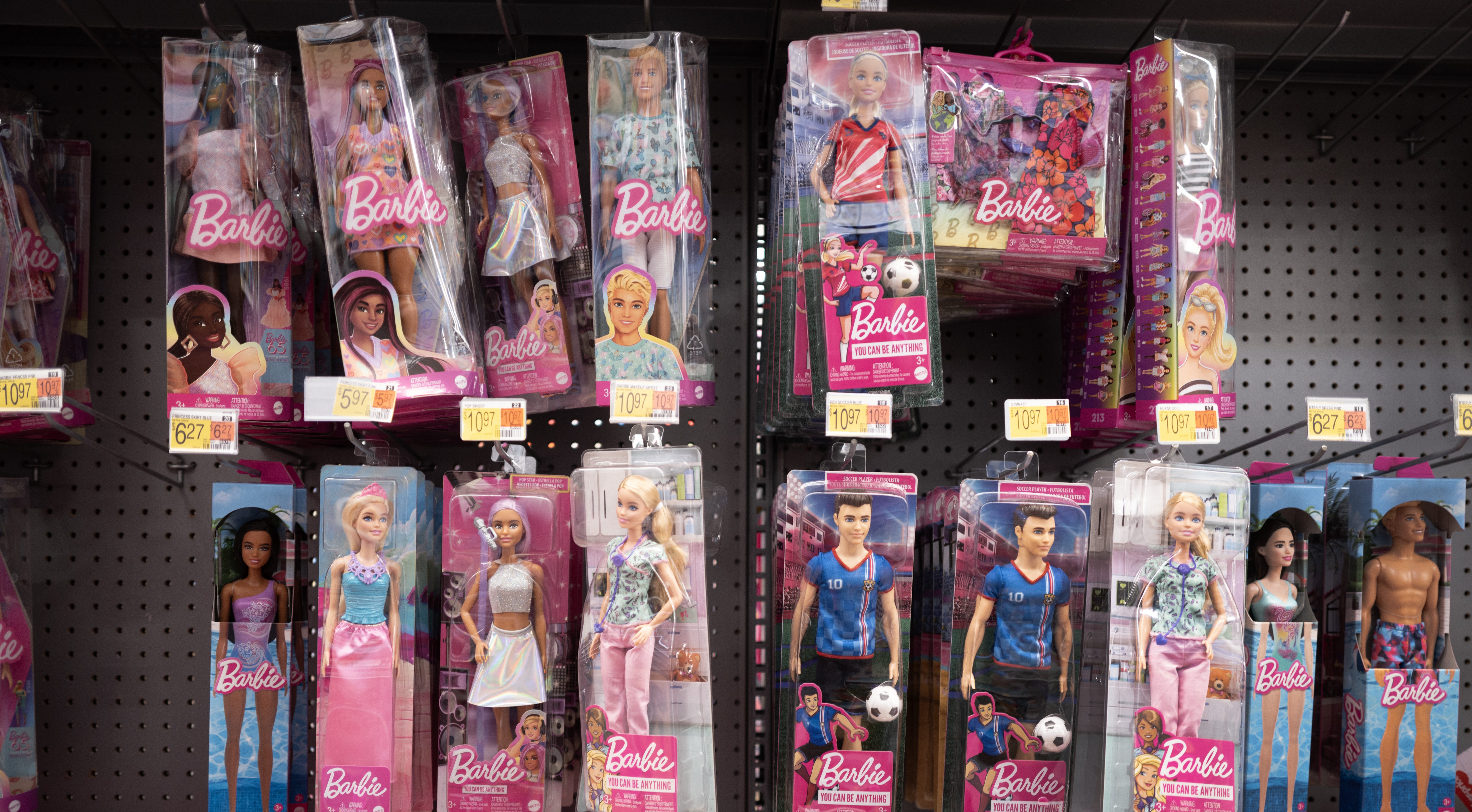Trump Tariffs: How They're Crushing Small Businesses
Trump Tariffs Squeeze Small Businesses: A Chocolate Lover's Nightmare
Introduction: The Tariff Tightrope
Imagine running a small business. You're constantly juggling costs, customer satisfaction, and competition. Now, imagine someone suddenly throws a basketball at your face while you're trying to juggle those delicate balls. That, according to many small business owners, is what the Trump-era tariffs felt like. These tariffs, designed to protect American industries, often had unintended consequences, especially for smaller enterprises. Let's dive into how these policies impacted businesses, using the example of a local ice cream shop struggling to keep its orange chocolate flavor alive.
Orange Chocolate Off the Menu: A Sign of the Times
Annie Park, co-owner of Sarah’s Handmade Ice Cream, a chain in the Washington, D.C. area, knows firsthand the impact of rising costs. Orange chocolate is officially off the menu. This isn't because of a lack of customer demand; it's a direct result of soaring cocoa prices, exacerbated by tariff uncertainty. Could this be happening to businesses in your own town?
The Cocoa Crisis: A Perfect Storm
Cocoa prices were already high, but tariff uncertainty has nearly doubled them, according to Park. This is a double whammy. Existing price pressures combined with the added cost of tariffs create a situation that's unsustainable for many small businesses. It's like trying to fill a leaky bucket faster than it's draining – eventually, you run out of water.
Adapting to Survive: Creative Solutions
To avoid raising prices for customers, Park is getting creative. She’s axed the orange chocolate flavor and is considering eliminating other cocoa-heavy flavors or reformulating recipes to use less cocoa powder. This showcases the resilience of small business owners, but is it a long-term solution?
"It's Day By Day": The Uncertainty Factor
“We’re finding ways to be creative,” Park tells CNBC Make It. But when it comes to planning, “it’s day by day.” This highlights the biggest challenge: uncertainty. Businesses can adapt, but they need a stable environment to plan effectively. Tariffs, with their fluctuating rates and uncertain future, create anything but stability.
Understanding the Trump Tariffs: A Quick Overview
The Trump administration imposed a sweeping set of tariffs on foreign imports, including a 10% tariff on goods from most countries, up to 25% on products from Canada and Mexico, and a 145% tariff on Chinese imports. While some tariffs have been paused, the threat of their return looms large.
The Ripple Effect: Beyond Cocoa Powder
While the ice cream example focuses on cocoa, the impact of tariffs extends far beyond a single ingredient. Tariffs affect everything from steel and aluminum to electronics and clothing. This means businesses in almost every sector face increased costs and supply chain disruptions.
H3 Supply Chain Disruption
Tariffs disrupted global supply chains, forcing businesses to find alternative suppliers, which often meant higher costs and longer lead times. This created a logistical nightmare for many companies, particularly those reliant on just-in-time inventory management.
H3 Increased Costs
The most direct impact of tariffs was increased costs. Even if a business absorbed some of the tariff cost, it still impacted their profit margins. Passing the cost on to consumers risked losing sales.
H3 Trade Wars and Retaliation
The Trump administration's tariffs often triggered retaliatory tariffs from other countries. This created a trade war scenario, where businesses faced tariffs on both imports and exports, further damaging their competitiveness.
The Impact on Consumers: Higher Prices or Less Choice?
Ultimately, the costs associated with tariffs get passed on to consumers in one of two ways: higher prices or reduced product choices. In Annie Park's case, customers lose the orange chocolate flavor they might have loved. In other cases, prices might creep up across the board, impacting everyone's wallet.
The Argument for Tariffs: Protecting American Jobs
The rationale behind the tariffs was to protect American jobs and encourage domestic manufacturing. The idea was that by making foreign goods more expensive, American consumers would buy more American-made products, boosting domestic industries. But did it work?
The Evidence is Mixed: Did Tariffs Achieve Their Goals?
The evidence on whether tariffs achieved their intended goals is mixed. Some industries saw a modest increase in domestic production, but this was often offset by higher costs for businesses and consumers. Other industries saw little to no benefit and suffered from retaliatory tariffs.
H3 Job Creation or Job Loss?
While tariffs were intended to create jobs, many economists argue that they led to job losses in industries that rely on imported goods. The increased costs and supply chain disruptions often outweighed any potential benefits.
H3 Impact on Specific Industries
Some industries, like steel and aluminum, did see a temporary boost from tariffs. However, downstream industries that use these materials, such as the automotive and construction sectors, faced higher costs and reduced competitiveness.
Looking Ahead: The Future of Trade Policy
The future of trade policy remains uncertain. While some tariffs have been paused, they could be reinstated at any time. Businesses need to be prepared for a volatile trade environment and develop strategies to mitigate the risks associated with tariffs.
H3 Diversifying Supply Chains
One strategy is to diversify supply chains, reducing reliance on a single country or region. This can make businesses more resilient to trade disruptions.
H3 Negotiating Better Deals
Businesses can also work with their suppliers to negotiate better deals and find ways to absorb some of the tariff costs.
H3 Advocating for Policy Changes
Finally, businesses can advocate for policy changes that promote free and fair trade and reduce the risk of future tariffs.
Navigating the Tariff Maze: Resources for Small Businesses
The US government offers resources to help businesses navigate the complexities of tariffs and trade regulations. The U.S. Trade Representative website provides information on current tariffs and trade agreements. The Small Business Administration (SBA) offers counseling and resources to help businesses affected by tariffs.
Conclusion: Lessons Learned from the Tariff Era
The Trump-era tariffs highlight the complex and often unintended consequences of trade policy. While the intention may have been to protect American jobs and industries, the reality was often increased costs, supply chain disruptions, and uncertainty for small businesses. The lesson learned is that trade policy needs to be carefully considered, with a full understanding of the potential impacts on all stakeholders. Businesses must adapt, diversify, and advocate for policies that promote a stable and predictable trade environment.
Frequently Asked Questions
- What exactly are tariffs?
Tariffs are taxes imposed by a government on imported goods or services. They increase the cost of these goods, making them more expensive for consumers and businesses.
- Why do governments impose tariffs?
Governments impose tariffs for various reasons, including protecting domestic industries, generating revenue, and retaliating against unfair trade practices by other countries.
- How do tariffs affect small businesses?
Tariffs can increase the cost of imported raw materials and components, disrupt supply chains, and reduce competitiveness in international markets. This can lead to lower profits, job losses, and even business closures.
- What can small businesses do to mitigate the impact of tariffs?
Small businesses can diversify their supply chains, negotiate better deals with suppliers, find alternative suppliers, and advocate for policy changes that promote free and fair trade.
- Where can I find more information about current tariffs and trade regulations?
The U.S. Trade Representative website provides information on current tariffs and trade agreements. The Small Business Administration (SBA) offers counseling and resources to help businesses affected by tariffs.









